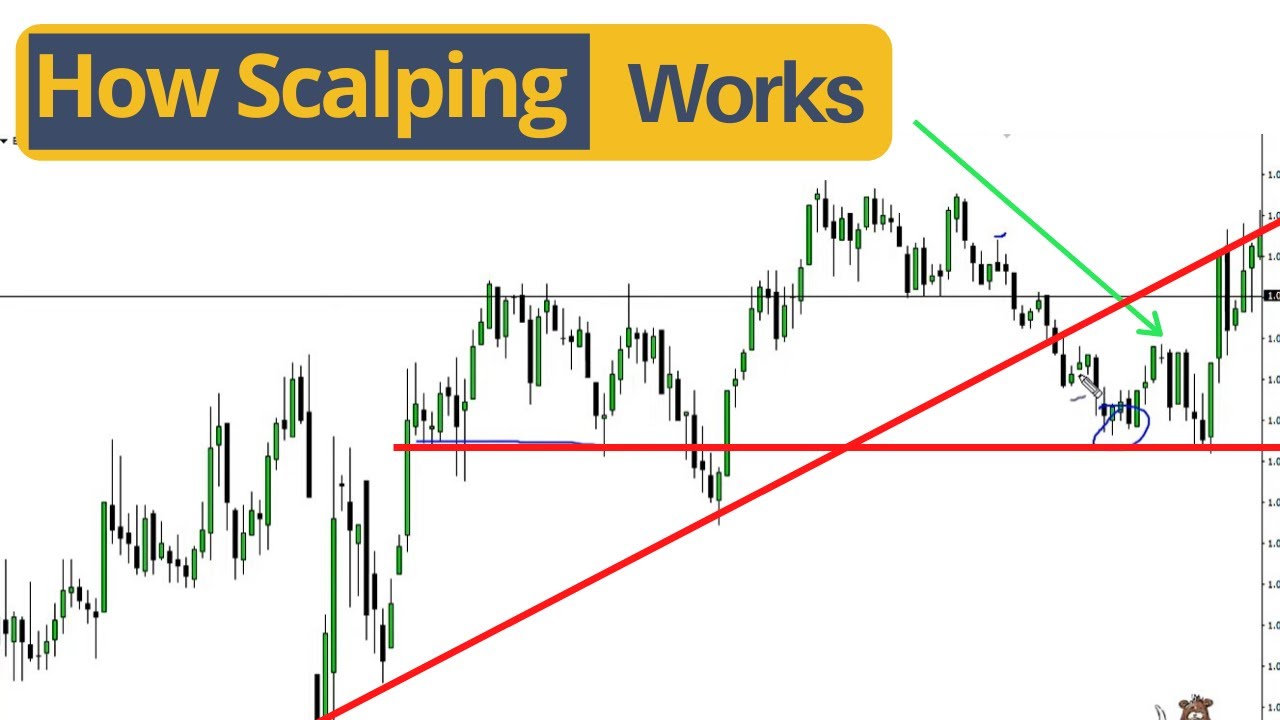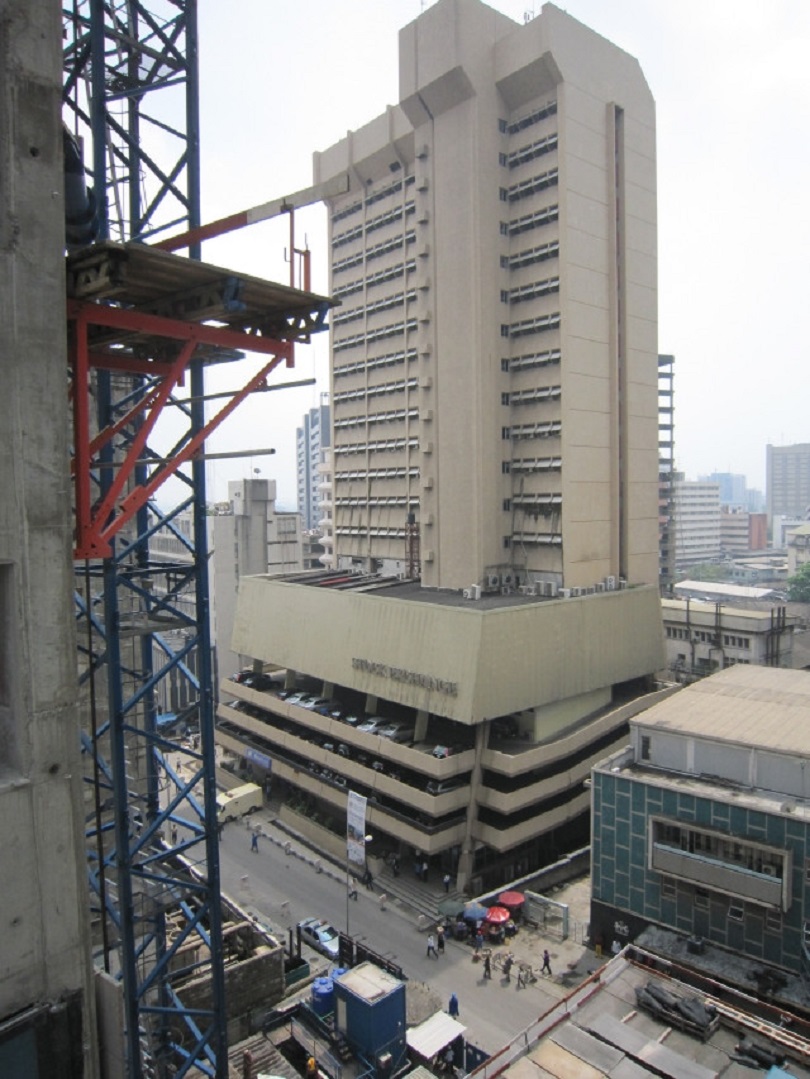Economy
Why Scalping is the go-to Trading Strategy for Cryptos

If you’re familiar with forex dealing, you’ve also come across the word scalping. It is also known as scalp dealing. It’s a trading technique in which customers benefit from minor fluctuations in futures markets.
Functional analysis, such as the MACD, and candlestick tables, are primarily used in its implementation. This is now standard procedure for cryptocurrency traders.
The aim of this approach is to make money fast, but the issue that keeps coming up is how it works for cryptocurrencies like Bitcoin. We’ll go into the specifics of how crypto scalping operates and how you can use it to your benefit as a crypto trader.
How does scalping work?
Scalping has traditionally been shown to be a low-cost, short-term trading tactic that yields lower gains with less risk. Traders who use this technique do so by making a series of small trades easily. And as the trading day progresses, these small trades will add up to a significant amount of benefit, as in this minute scalping technique, where a trader must bring in all of his paces and focus for these small trades to come in, and this is why most veteran traders use electronic trading systems, which are built to assist traders in identifying and executing trades based on data obtained from various sources.
Traders that use this technique for cryptocurrencies can keep an eye on the values of a crypto pair, such as ETH/BTC or BTC/USD, and take advantage of market fluctuations to benefit from each small transaction. When rates rise, investors benefit from higher market volume because it adds value.
This helps you to open and close trades easily without having to keep them for an extended period of time. And as soon as the market reaches your target price, sell signs will appear, closing your positions for you while you walk away with a slight profit.
However, for the beginner on the market, it is more beneficial to use the 1-minute scalping strategy, which can be a little bit different from what the experienced traders are using. The method would still necessitate time and focus effort. If you are unable to devote at least a few hours per day to this FX approach, you should try using other, less time-consuming trading tactics.
The exchange and trading costs are two very critical factors to remember when implementing this approach. Since most trades charge a taker and a nominal creator fee on each deal, and you’ll be doing multiple minor trades in a row, you’ll need profit margins and risk resources to cover the fees you’ll incur for this approach.
Bonuses are often offered by trades that foster liquidity in order to reduce trading costs. These bonuses are often linked to an exchange-specific token that can be used to further mitigate costs, often up to a 50% discount.
Altcoin scalping vs Bitcoin scalping
Bitcoin is also the most stable of the dynamic community of cryptocurrencies when compared to other cryptocurrencies. This ensures the gains per exchange are smaller, but it’s still useful for scalping because theoretical research forecasts that BTC will stay steady during the trading session. As a result, the most popular method of scalp trading in the cryptocurrency industry is BTC scalping.
Altcoin, on the other hand, may have significant price variations. This is especially true if the coins are smaller and are not sponsored by a well-known business. A coin could be deleted from the list, so anything could go wrong, including the money you made from the trades. If the coin isn’t worth much, the cost of transaction fees can be greater than the profit you gain from trading.
Whatever crypto you want to test your scalping technique with, persistence and concentration are essential. It’s always a good idea to turn off your feelings at this stage to prevent being upset or giving up on your trade too soon if you don’t see profits within a few minutes.
What time is good for scalp trading with cryptos?
You’ll be able to tell whether the new business dynamics favour scalping or not until you know what to look out for. It’ll take some time and experience, but if you know what to look out for, you’ll be able to tell. When using the scalping technique, crypto investors are always on the lookout for three key business variables.
Relative Strength Index (RSI)
This is a tool that is measured based on recent market shifts. The relative Strength Index (RSI) determines if a commodity, such as Altcoin, is oversold or overbought and displays the results as a line graph. It could represent a number between 0 and 100. A Relative Strength Index of 70 or higher sometimes indicates that an asset is oversold or overbought, signalling a reasonable time to sell. When it is 30 or lower, the same is true: the stock is undervalued and primed for a price rise, signalling a reasonable time for a seller to buy.
Support and Resistance Levels
If an asset’s price rises or falls, its support and resistance ratios can change. As a result of this transition, an asset may experience a downward trend and a concentration of demand, or it may experience a rise in demand as prices decline.
The Moving Average
Investors use this to predict where an instrument’s price will go in the future by using historical data to predict what will sell. Some traders use charts to manually watch these metrics, but automation tools will help you interpret the same data quicker.
Scalping allows a dealer to make a lot of small gains from a large number of small transactions that accumulate easily, proving that “a little goes a long way.” Traders should be aware of the fees associated with such transactions, as the value provided can be less than the fee paid. However, much like anything else, a trader must put in time and effort to become an expert, particularly in a market as competitive as crypto trading.
Economy
NLC Urges FG to Sell Crude in Naira for Lower Fuel Prices

By Aduragbemi Omiyale
The federal government has been urged to consider selling crude in Naira to private refinery like Dangote Petroleum Refinery to allow Nigerians enjoy lower fuel prices.
This appeal was made by the Lagos State Chapter of the Nigerian Labour Congress (NLC) when its officials visited Dangote Refinery in Lagos recently.
The labour union commended the oil facility owned by Mr Aliko Dangote, describing it as a transformative national asset, capable of bridging Nigeria’s fuel supply gap, boosting employment, and restoring public confidence in the country’s industrial capacity.
It asked the government to prioritise the sale of crude oil to the Dangote Refinery in Naira, arguing that forcing the company to import crude or purchase locally in dollars undermines the promise of lower fuel prices for ordinary Nigerians.
The chairman of the chapter, Ms Funmi Sessi, said, “Today, we have seen the massive Dangote Refinery project, as well as the fertiliser plant. We have also observed some of Dangote’s other investments in this axis. It is truly enormous and highly impressive.
“I believe what we have seen is a clear effort to bridge the gap in the availability of essential products in the country and to create job opportunities for Nigerians and others as well as industrialise the country.”
The union acknowledged that following the federal government’s removal of petrol subsidies, Nigerians experienced an unprecedented surge in the cost of Premium Motor Spirit (PMS). However, the entrance of Dangote Petroleum Refinery into the market helped to stabilise prices.
“It wasn’t until Dangote came into the picture that we started seeing some relief. His intervention significantly crashed the escalated prices of PMS and other refined products. That’s a clear demonstration of private sector leadership,” she stated.
“This country has crude oil in abundance. So, why is Dangote still being made to import crude or pay for it in hard currency?” the NLC queried, noting, “If the government is truly committed to reducing fuel prices and supporting local refining, it must sell crude oil to Dangote in Naira.”
The union stressed that sourcing crude locally in local currency would significantly lower operational costs and, by extension, lead to a more sustainable reduction in fuel prices.
“With a daily capacity of 650,000 barrels, this refinery can serve Nigeria and even the West African sub-region. We also see big ships taking fertilisers to other countries. The government must maximise,” the NLC stated.
The group further said, “When government-owned refineries failed, one man stepped up. Aliko Dangote didn’t just make promises; he fulfilled them. He has proven that Nigeria can not only refine its own products but also meet international quality standards.”
The union also hailed the refinery’s production of Euro 5-compliant fuel, which features significantly reduced sulphur content, aligning with international environmental standards and boosting Nigeria’s credibility in the global petroleum market.
“This is the kind of pride we want to see — a Nigerian company producing at global standards. It is changing the narrative and elevating Nigeria’s position globally. It’s time the government supports and maximises the capacity of this asset.”
In addition to fuel, the NLC noted the group’s fertiliser company, which is already exporting to international markets. It urged the government to leverage these capabilities to enhance food security and reduce dependence on imported agricultural inputs.
In his remarks, the Vice President for Oil and Gas at Dangote Industries Limited, Mr Devakumar Edwin, said the planned deployment of 4,000 Compressed Natural Gas (CNG)-powered trucks to support the distribution of refined petroleum products across Nigeria is aimed at ensuring that the benefits of domestic refining and the resulting reduction in fuel prices are fully passed on to Nigerian consumers.
Mr Edwin stated that the introduction of the CNG-powered fleet is a strategic step to reduce logistics costs in fuel distribution — a major factor in the final pump price.
“The deployment of these 4,000 CNG-powered trucks will help us pass down the benefits of domestic refining and the reduction in product prices to consumers,” Mr Edwin said. “The aim is to support logistics and make distribution more efficient, not to displace any existing players in the sector.”
He further explained that the use of CNG-powered trucks, in addition to being more environmentally friendly, will significantly reduce transportation expenses, ultimately making refined products more affordable for Nigerians.
Mr Edwin also highlighted the wider impact of Dangote’s industrial ventures, particularly in stimulating competition and growth in key sectors of the Nigerian economy. He cited the Dangote Sugar Refinery as an example, noting that its success paved the way for other companies, including BUA Group and Nigerian Flour Mills to invest in sugar production.
“We’ve seen it with sugar, and we’ve seen it with cement. The success of Dangote Cement led to the emergence of players like BUA, Mangal, and the expansion of Lafarge,” he said. “In the same way, the success of this refinery will drive the emergence of more private refineries in Nigeria.”
According to him, the Dangote Refinery is not only helping to address Nigeria’s long-standing reliance on imported refined products but is also setting the pace for a sustainable and competitive refining industry that will benefit the broader economy.
He noted that the Dangote Group has become a nurturing ground for Nigerian engineers, scientists and technicians, many of whom have gone on to work as expatriates in various countries. He assured the labour leaders of the company’s steadfast commitment to human capital development, staff welfare, and the overall wellbeing of the economy, emphasising that Aliko Dangote is a patriotic Nigerian fully dedicated to the nation’s progress.
Economy
Customs Street Posts Modest Gain of 0.12% as Investors Recalibrate Portfolios

By Dipo Olowookere
A marginal gain of 0.12 per cent was recorded by the Nigerian Exchange (NGX) Limited on Tuesday as investors slowed their appetite for stocks as they recalibrated their portfolios for a mix of different equities and other asset classes like bonds, treasury bills and others.
However, the demand for shares in the insurance sector continued as the index grew by 9.12 per cent and was followed by the industrial goods space, which closed higher by 0.86 per cent.
But, the consumer goods industry depreciated by 0.47 per cent, the banking space lost 0.22 per cent, and the energy counter declined by 0.19 per cent.
The losses recorded by these three sectors could not pull down Customs Street yesterday, as the All-Share Index (ASI) gained 175.12 points to quote at 146,055.89 points compared with Monday’s 145,880.77 points and the market capitalisation added N111 billion to finish at N92,405 trillion versus the preceding session’s N92.294 trillion.
ABC Transport, Prestige Assurance, The Initiates, Coronation Insurance, and Champion Breweries chalked up 10.00 per cent each during the trading day to end at N4.95, N2.20, N14.52, N4.07, and N17.38, respectively.
However, Juli lost 10.00 per cent to sell for N9.00, Unilever Nigeria declined by 9.97 per cent to N71.30, Custodian Investment crashed by 9.58 per cent to N37.90, Academy Press slipped by 7.78 per cent to N8.30, and May and Baker gave up 7.69 per cent to trade at N18.00.
Business Post reports that the market breadth index was positive as there were 50 price gainers and 29 price losers, indicating a strong investor sentiment.
The activity chart was led by Lasaco Assurance with 107.2 million shares sold for N439.2 million, Japaul traded 106.9 million equities valued at N302.7 million, Sterling Holdings exchanged 97.8 million stocks worth N784.5 million, AIICO Insurance transacted 65.0 million shares for N273.4 million, and Access Holdings traded 61.1 million equities worth N1.7 billion.
At the close of business, investors bought and sold 1.3 billion stocks valued at N24.3 billion in 31,155 deals versus the 2.1 billion stocks worth N19.4 billion exchanged in 40,435 deals a day earlier, implying a decline trading volume and the number of deals by 38.10 per cent and 22.95 per cent, respective, and a rise in the trading value by 25.26 per cent.
Economy
CSCS, Three Others Weaken NASD Bourse by 1.46%

By Adedapo Adesanya
Four stocks pulled down the NASD Over-the-Counter (OTC) Securities Exchange by 1.46 per cent on Tuesday, August 12, a day after it welcomed a new member, MRS Oil Nigeria Plc.
At the bourse yesterday, the market capitalisation fell by N32.13 billion to close at N2.162 trillion compared with the previous day’s N2.194 trillion and the NASD Unlisted Security Index (NSI) depreciated by 53.70 points to settle at 3,614.69 points, in contrast to the 3,668.39 points it finished a day earlier.
According to the trading data, Central Securities Clearing System (CSCS) Plc went down by N5.30 to close at N48.20 per share compared with Monday’s closing price of N53.50 per share, FrieslandCampina Wamco Nigeria Plc crumbled by N1.55 to end at N66.84 per unit versus the previous session’s N68.39 per unit, Food Concepts Plc slid by 12 Kobo to N3.10 per share from N3.22 per share, and Geo-Fluids Plc fell by 1 Kobo to N4.99 per unit from N5.00 per unit.
Conversely, Industrial and General Insurance (IGI) Plc gained 4 Kobo to end at 48 Kobo per share compared with the preceding day’s 44 Kobo per share, and First Trust Mortgage Bank Plc appreciated by 1 Kobo to 63 Kobo per unit from 62 Kobo per unit.
During the session, the volume of securities soared by 4,137.5 per cent to 31.9 million units from 751,813 units, the value of securities surged by 981.5 per cent to N113.5 million from N10.5 million, while the number of deals went down by 7.5 per cent to 37 deals from 40 deals.
The most traded stock by value on a year-to-date basis remained Okitipupa Plc with 154.4 million units sold for N5.0 billion, trailed by Air Liquide Plc with 507.2 million units worth N4.2 billion, and FrieslandCampina Wamco Nigeria Plc with 43.8 million units traded for N1.9 billion.
IGI Plc also remained as the most traded stock by volume on a year-to-date basis with 1.1 billion units transacted for N367.9 million, followed by Impresit Bakolori Plc with 536.9 million units worth N524.8 million, and Air Liquide Plc with 507.2 million units valued at N4.2 billion.
-

 Feature/OPED6 years ago
Feature/OPED6 years agoDavos was Different this year
-
Travel/Tourism9 years ago
Lagos Seals Western Lodge Hotel In Ikorodu
-

 Showbiz3 years ago
Showbiz3 years agoEstranged Lover Releases Videos of Empress Njamah Bathing
-

 Banking7 years ago
Banking7 years agoSort Codes of GTBank Branches in Nigeria
-

 Economy2 years ago
Economy2 years agoSubsidy Removal: CNG at N130 Per Litre Cheaper Than Petrol—IPMAN
-

 Banking2 years ago
Banking2 years agoFirst Bank Announces Planned Downtime
-

 Sports2 years ago
Sports2 years agoHighest Paid Nigerian Footballer – How Much Do Nigerian Footballers Earn
-

 Technology5 years ago
Technology5 years agoHow To Link Your MTN, Airtel, Glo, 9mobile Lines to NIN














